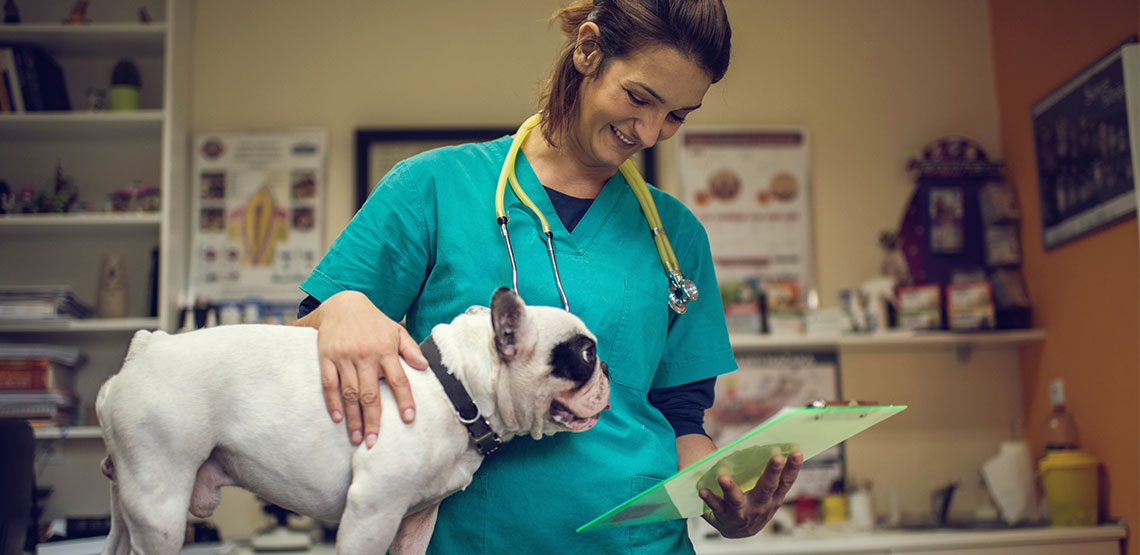How to Find a Vet
When it comes time to find a vet for your loving fur or feather baby, it is all about good reputation. Forget about shiny office fronts, funny billboards and glitz-and-glam commercials — old-fashioned word-of-mouth is the best advertisement. Additionally, many vets have referral programs that offer discounts for both you and the friend who referred you.
Before making the decision, you can always check if the vet’s practice is accredited by certain national animal hospital associations. Currently, the law does not require vet practices to be accredited. However, an accreditation shows commitment and devotion to maintaining high standards.
What to Look for in a Good Vet
When choosing your vet, you need to consider a plethora of factors. Those factors can be classified into three main groups:
- Factors related to the facility.
- Factors related to the practice, its services and policies.
- Factors related to the veterinarian.
1. Factors Related to the Facility
Here's a simple checklist of things to look for in the facility:
- Is it close to where you live?
- Does it have its own parking place?
- Is the facility clean? (You will not be able to peek behind-the-scenes, but the lobby, waiting area and exam rooms are a good indicator.)
- Are there separate waiting areas for dogs and cats?
- Do the people and animals in the waiting area feel comfortable and safe?
2. Factors Related to the Practice, Its Services and Policies
A simple checklist of things to look for in the practice:
- Is the staff calm, caring and courteous?
- Does the practice refer patients to specialists?
- Does the practice offer overnight stays and, if so, how are overnight patients monitored?
- What emergency services does the practice offer?
- Are additional diagnostic procedures done in-home or referred offsite?
- What types of payment does the practice accept?
3. Factors Related to the Veterinarian
Factors related to the veterinarian are the most complex. You need to pay attention to both professional and interpersonal skills. The things you need to look for in a good veterinarian include:
- Genuine concern for your animal: try noticing little signs, for example, if the vet greets your pet before greeting you.
- Healthy communication: is the vet willing to listen and answer questions?
- Kindness and patience: notice the vet’s attitude towards you and your pet.
- Availability: is the vet always available or only during work hours?
Related Search Topics (Ads):
Services Vets Offer
A good veterinary practice should offer:
- Preventive pet healthcare (vaccinations, parasite control, nutritional counseling, behavioral counseling, comprehensive examinations).
- Microchipping.
- Diagnosis services (laboratory tests – hematology, biochemistry and endocrine parameters, biopsy, ultrasound, radiography, electrocardiography, endoscopy, tonometry).
- Treatment services (acute and chronic conditions).
- Preventive, curative and palliative surgery (spay/neuter, wound care, dental cleanings and extractions, mass removals, gastrointestinal procedures, urinary bladder procedures, basic ophthalmic procedures, basic orthopedic procedures).
- Breeding services (reproduction planning, artificial insemination, vaginal cytology, Caesarian section).
- Emergency services.
- 24-hour critical care and monitoring.
- Grooming services (medical baths).
Why Finding a Vet is Important
Part of being a responsible owner is having your pet regularly checked by a veterinarian. All pets, especially while young, are extremely susceptible to infectious disease and internal and external parasites. Scheduled vaccinations and regular anti-parasite treatments are needed to protect your pet.
Additionally, many benign conditions can easily progress to a non-treatable degree. Other conditions can have permanent consequences if not addressed in time. Last but not least, geriatric pets have different needs and are more prone to certain age-related conditions and disorders. With adequate veterinarian care, some of those conditions can be prevented and made easier to live with.
Good communication and collaboration are vital parts of quality vet care. Your pet and your vet both depend on you for an accurate description of what you have seen, felt, heard or smelled. What you tell your vet and what they ascertain from a physical examination and diagnostics are at the core of problem-oriented veterinary medicine.
Common problems, such as scratching, limping, coughing or vomiting may have their origins outside the part of the body obviously affected. Therefore, they need to be discussed from a problem-oriented point of view.
You can only describe your pet’s clinical signs and what you have seen. It is up to your vet to turn those signs and symptoms into an accurate diagnosis and determine a corresponding therapy.
Once you find a good veterinarian, try to be a good client. Advocate for your pet, but when needed, step back and let your trusted vet take over.
